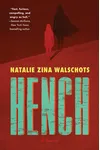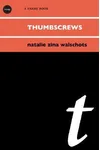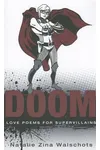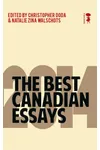Picture a Canadian storyteller who flips superhero tropes on their head and crafts poetry for supervillains—meet Natalie Zina Walschots! This author and game designer weaves speculative fiction, gaming, and sharp humor into unforgettable narratives. From her award-winning novel Hench to her boundary-pushing poetry, Walschots is a vibrant voice challenging who gets to be the hero in today’s pop culture.
With a career spanning LARP scripts, heavy metal journalism, and video game lore, she’s a creative powerhouse. Her work doesn’t just entertain—it questions power, celebrates the underdog, and champions inclusivity in gaming. Ready to dive into her world? Let’s explore the life and legacy of this genre-bending talent.
The Making of Natalie Zina Walschots
Born in Canada, Natalie Zina Walschots grew up with a passion for speculative fiction, horror movies, and role-playing games like Dungeons & Dragons. Her early love for comics and fantasy shaped her unique storytelling style. After studying literature, she veered from academia to freelance writing, penning everything from music reviews to feminist game critiques. Her involvement in Nordic LARPs and interactive storytelling sparked a knack for crafting immersive narratives, setting the stage for her literary career.
Walschots’s diverse gigs—writing for indie game studios, music magazines, and even a stint in adult content creation—honed her ability to blend wit with cultural commentary. This eclectic background fueled her debut works, where she began reimagining villains and henchpeople with heart and humor.
Natalie Zina Walschots’s Unforgettable Stories
Walschots’s debut novel, Hench (2020), is a speculative fiction gem that redefines the superhero genre. Following Anna Tromedlov, a temp worker for supervillains, the story uses data-driven vengeance and office politics to critique heroism. A finalist for Canada Reads 2021 and nominated for a Locus Award, Hench blends snarky humor with poignant commentary on labor and justice.
Her poetry is equally bold. Thumbscrews (2007) won the Robert Kroetsch Award for Innovative Poetry, showcasing her experimental style. DOOM: Love Poems for Supervillains (2012) is a witty, erotic collection that humanizes comic book baddies like Doctor Doom and Magneto, blending technical language with tenderness. Her interactive work, like the IndieCade-winning The Aluminum Cat, merges gaming and storytelling, while her Bloodborne-inspired poetry for Fine or Foul explores video game lore with haunting beauty.
Walschots’s style is sharp, subversive, and deeply empathetic. Whether through prose or verse, she champions the marginalized—henchpeople, villains, or gender-diverse gamers—while dissecting power dynamics with a playful yet incisive edge. Her work feels like a conversation with a clever friend who loves comics as much as you do.
Why Natalie Zina Walschots Matters
Walschots’s impact lies in her ability to make us rethink heroes and villains. Hench challenges the glorification of superheroes, exposing their collateral damage, while her poetry gives voice to the misunderstood. Her advocacy through Dames Making Games, a platform for queer and gender-marginalized creators, fosters inclusivity in gaming, empowering diverse voices to shape interactive narratives.
By blending speculative fiction, gaming, and social critique, Walschots bridges niche and mainstream audiences. Her stories resonate with readers who see themselves in the underdog, while her workshops inspire new creators. As she works on a Hench sequel and video game projects, her influence continues to grow, proving that even henchpeople deserve their spotlight.
- Key Works: Hench, DOOM: Love Poems for Supervillains, Thumbscrews, The Aluminum Cat
- Awards: Robert Kroetsch Award, IndieCade Award, Canada Reads 2021 Finalist
- Hobbies: Dungeons & Dragons, Nordic LARPs, horror movies
Snag Hench or DOOM and dive into Natalie Zina Walschots’s subversive, speculative world! Whether you’re a comic nerd or a poetry fan, her stories will leave you cheering for the underdog.




